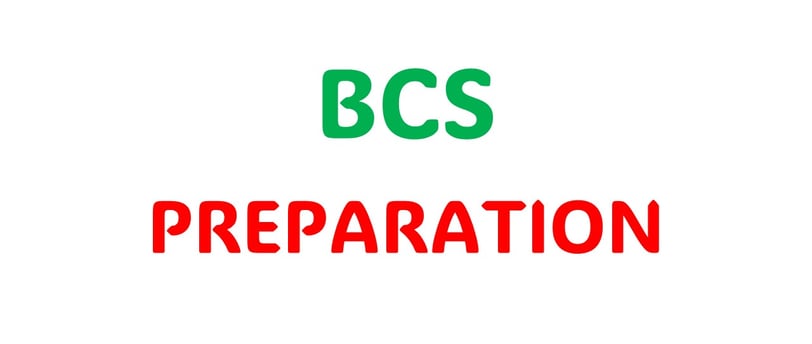Understanding Nouns: Types and Examples
This comprehensive lecture on "Understanding Nouns" equips you with detailed insights into noun types and their usage. Test your knowledge with challenging BCS-style exam questions and compare your answers. Perfect for competitive exam preparation!
HOMEBCS


In English grammar, nouns are essential building blocks of language. They name people, places, things, or ideas and serve as the foundation for creating sentences. For competitive exams like BCS, a robust understanding of nouns and their types is crucial for mastering grammar and improving overall language skills.
Definition of Nouns
A noun is a word that names a person, place, thing, or concept. It can act as the subject, object, or complement in a sentence.
Examples:
Person: student, doctor, Rabindranath Tagore
Place: Dhaka, library, hill
Thing: table, book, mobile
Idea: freedom, beauty, love
Key Features of Nouns
Countable or Uncountable: Some nouns can be counted (e.g., chairs), while others cannot (e.g., milk).
Singular or Plural: Nouns can indicate one or more entities (e.g., cat vs. cats).
Case Sensitivity: Proper nouns are capitalized (e.g., Bangladesh), while common nouns are not (e.g., river).
Possessive Form: Ownership is shown using an apostrophe (e.g., Rahim’s book).
Types of Nouns
For the BCS exam, identifying and classifying nouns accurately is crucial. Below are the main types of nouns, explained in detail with examples.
1. Common Nouns
Definition: Names general items, not specific ones.
Examples: teacher, river, chair, country.
Exam-Relevant Sentence:
Incorrect: Teacher is good.
Correct: The teacher is good.
2. Proper Nouns
Definition: Names specific people, places, or organizations. Always capitalized.
Examples: Dhaka, Sheikh Mujibur Rahman, Padma Bridge.
Exam Tip: Ensure proper capitalization in sentences.
Example: Dhaka is the capital of Bangladesh.
3. Concrete Nouns
Definition: Nouns that can be perceived with the five senses.
Examples: flower (smell), book (touch), music (hear).
Usage in Sentences:
The flower is beautiful.
I read an interesting book.
4. Abstract Nouns
Definition: Nouns representing ideas, emotions, or qualities that cannot be physically touched.
Examples: honesty, courage, peace, intelligence.
Usage in Sentences:
Honesty is the best policy.
Freedom comes with responsibility.
5. Countable Nouns
Definition: Nouns that can be counted individually.
Examples: apple, car, student.
Pluralization Rules:
Add -s: book → books.
Add -es: box → boxes.
Irregular forms: child → children.
Usage:
Singular: I have a pen.
Plural: I have two pens.
6. Uncountable Nouns
Definition: Nouns that cannot be counted and typically lack a plural form.
Examples: milk, information, sugar, knowledge.
Usage:
Correct: I need some water.
Incorrect: I need a water.
7. Collective Nouns
Definition: Represents a group of people, animals, or things.
Examples: team, jury, flock, bunch.
Usage:
The team is practicing hard.
A flock of birds flew past.
Exam Tip: Collective nouns may take singular or plural verbs depending on the context:
Singular: The jury has reached a decision.
Plural: The jury are arguing among themselves.
8. Compound Nouns
Definition: Formed by combining two or more words.
Forms:
Single word: notebook, firefighter.
Hyphenated: mother-in-law, well-being.
Separate words: high school, ice cream.
Usage:
I bought a notebook yesterday.
She prefers ice cream in summer.
9. Possessive Nouns
Definition: Shows ownership or possession.
Formation Rules:
Singular: Add 's: Rahim’s pen.
Plural ending in s: Add apostrophe only: students’ books.
Usage:
Singular: The dog’s bone is missing.
Plural: The players’ performance was excellent.
10. Gender-Specific Nouns
Definition: Indicates gender.
Masculine: boy, king, uncle.
Feminine: girl, queen, aunt.
Neutral: teacher, child, person.
Usage:
The king addressed the nation.
The queen was welcomed warmly.
Role of Nouns in Sentences
As Subject:
The teacher teaches grammar.
As Object:
The student read a book.
As Complement:
She is a doctor.
As Possessive:
This is Rahim’s notebook.
Common Errors with Nouns
For BCS candidates, identifying errors involving nouns is a common task in the grammar section.
Countable vs. Uncountable Nouns:
Incorrect: He gave me many advice.
Correct: He gave me much advice.
Pluralization Mistakes:
Incorrect: She has many childs.
Correct: She has many children.
Possessive Usage:
Incorrect: This is the book of Rahim.
Correct: This is Rahim’s book.
Common vs. Proper Nouns:
Incorrect: He lives in city.
Correct: He lives in Dhaka.
Advanced Rules for Competitive Exams
Singular vs. Plural Collective Nouns:
Correct: The jury was unanimous in its decision.
Correct: The jury are divided in their opinions.
Uncountable Noun Quantifiers:
Correct: A piece of advice.
Incorrect: An advice.
Abstract and Concrete Noun Overlap:
Correct: Knowledge is power (abstract).
Correct: Books provide knowledge (concrete).
Tips for BCS Candidates
Focus on Rules: Memorize key rules about pluralization, possessive forms, and uncountable nouns.
Practice Error Identification: Be adept at spotting errors in noun usage in competitive exam questions.
Strengthen Vocabulary: Build a strong vocabulary of proper, abstract, and collective nouns.
Mastering nouns is fundamental for success in competitive exams like BCS. Understanding their types, functions, and common errors will enable candidates to excel in the grammar section. Regular practice, coupled with attention to detail, will ensure a strong foundation in this essential topic.
Quick Exam!
Questions
Which sentence contains an abstract noun?
a) The teacher explained the topic clearly.
b) Justice must be served in the courtroom.
c) The cat is hiding under the table.
d) The river flows swiftly during monsoon.Which of the following contains both a proper noun and a common noun?
a) Dhaka is the capital of Bangladesh.
b) The boy reads books in the library.
c) Freedom is essential for happiness.
d) Mount Everest is the highest peak in the world.Which of the following nouns is used as a possessive noun in this sentence?
"The children’s toys were scattered all over the floor."
a) children
b) toys
c) children’s
d) floorIdentify the type of noun underlined in the sentence:
"The audience was enthralled by the speaker's charisma." (Underline: audience)
a) Common noun
b) Proper noun
c) Abstract noun
d) Collective nounWhich plural form is correct?
a) Bacterias
b) Criteria
c) Phenomenons
d) OxesChoose the incorrect sentence regarding noun usage:
a) The child’s toy is broken.
b) I need some informations about the program.
c) A team of experts was invited to the conference.
d) The students’ notebooks are on the table.In which sentence is a collective noun used as a plural entity?
a) The team is working on a new project.
b) The jury are divided in their opinions.
c) A herd of cattle was grazing peacefully.
d) The committee has submitted its report.Which sentence correctly differentiates between concrete and abstract nouns?
a) Courage is essential, and the book was full of it.
b) Happiness is contagious, and love is tangible.
c) The child’s bravery won applause.
d) The fragrance of the flower symbolized freedom.What is the correct possessive form for the plural noun 'women'?
a) womens
b) womens'
c) women’s
d) woman’sIdentify the error in noun usage:
a) The committee are unanimous in their decision.
b) He has little knowledge about the topic.
c) She has given much advice on the issue.
d) The criteria for selection are not clear.Select the sentence with the correct use of a compound noun:
a) The icecream melted quickly.
b) The mother-in-law gave her blessings.
c) A bouquet-of-flowers was delivered.
d) The highschool was newly built.Which of the following is a concrete and countable noun?
a) Intelligence
b) Rice
c) Chair
d) CourageWhat type of noun is 'happiness' in the sentence 'Her happiness knew no bounds'?
a) Common noun
b) Abstract noun
c) Proper noun
d) Collective nounWhich noun is incorrectly pluralized?
a) Cacti
b) Geeses
c) Bacteria
d) AlumniIdentify the collective noun in the sentence:
"A swarm of bees attacked the villagers."
a) swarm
b) bees
c) villagers
d) attackedWhat type of noun is 'poverty'?
a) Abstract noun
b) Concrete noun
c) Common noun
d) Proper nounWhich of the following nouns is used incorrectly in the possessive form?
a) Women’s rights are essential for equality.
b) This is the childrens’ playground.
c) The student’s uniform was torn.
d) The teachers’ lounge is spacious.Which sentence uses an uncountable noun incorrectly?
a) I need two informations about the event.
b) Much effort is needed for success.
c) She gave excellent advice to her friend.
d) The furniture was arranged neatly.Which of the following sentences shows correct usage of a gender-specific noun?
a) The lady was elected as chairman.
b) The queen ruled with wisdom and courage.
c) The boy won the best actress award.
d) The king and princess played in the garden.Choose the correct sentence with a collective noun in singular form:
a) The family are planning a vacation.
b) The committee has reached its decision.
c) The herd were grazing in the field.
d) The audience have left the hall.
Answers
b) Justice must be served in the courtroom.
d) Mount Everest is the highest peak in the world.
c) children’s
d) Collective noun
b) Criteria
b) I need some informations about the program.
b) The jury are divided in their opinions.
c) The child’s bravery won applause.
c) women’s
a) The committee are unanimous in their decision.
b) The mother-in-law gave her blessings.
c) Chair
b) Abstract noun
b) Geeses
a) swarm
a) Abstract noun
b) This is the childrens’ playground.
a) I need two informations about the event.
b) The queen ruled with wisdom and courage.
b) The committee has reached its decision.
Humble Request: If you found this blog helpful, please share it with others to spread knowledge and help them learn too. [বিনীত অনুরোধঃ যদি এই ব্লগটি উপকারী মনে হয়, তবে এটি শেয়ার করে অন্যদের শেখার ও জানার সুযোগ দিন।]
